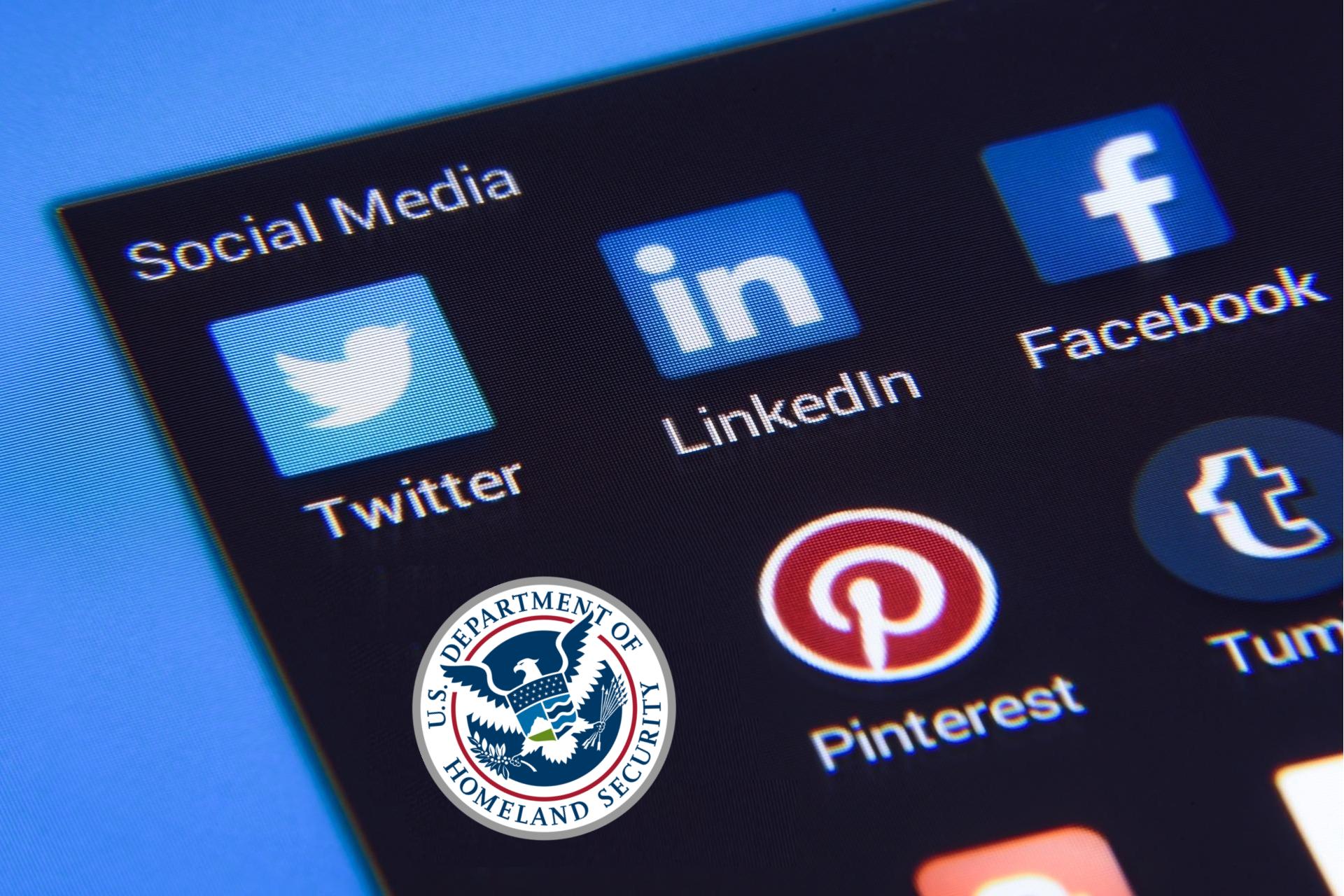In the hours after the US Supreme Court overturned Roe v. Wade, federal authorities were monitoring social media to gather intelligence about nationwide protests and possible violence.
HLS.Today – DHS – Bloomberg – Madeline Walker learned the feds were trawling the internet first-hand, when one of them knocked on her door. After the Supreme Court declared that the constitutional right to abortion had ceased to exist, an apparently incensed Walker, a Texas resident, posted on Twitter, “Burn every f–king government building down right the f–k now. Slaughter them all.”
Six days after a commercial monitoring service flagged her tweet, an agent from the Federal Protective Service, the Department of Homeland Security arm responsible for protecting federal buildings and personnel, showed up at Walker’s home to deliver a letter. It ordered her to “cease and desist in any conduct deemed harassing/threatening in nature, when communicating to or about the federal government.”
Walker tweeted about the incident, taking a photo of the letter as well as the business card of the agent. Her post went viral and was picked up by several outlets before she deleted it.
I was curious how the feds got wind of Walker’s tweets and how they identified her, so I filed a Freedom of Information Act request for emails of the agent who appeared at her door. The documents I received hinted at the wide scope of US government social media-monitoring. They also paint a picture of a government apparatus that keeps constant tabs on public posts for potential flashpoints—a practice with the potential to conflict with freedom of expression.
In one email the agent received, a DHS supervisor wrote: “We have all the Districts on standby for the potential Roe v. Wade SCOTUS decision that may be released today.” The email, dated June 24, urged agents to be in contact with their “fusion center” counterparts, a reference to state-owned police information-sharing outlets.
Several emails discussed Walker’s comments. Her tweets were “directed towards numerous federal facilities, as well as SCOTUS members,” wrote one agent, whose name—like many other details in the emails—was redacted. Another note said that her “social media is flowing with threatening and inappropriate comments toward federal facilities and police.”
Digital rights experts say that—while aggressive—Walker’s words were likely within the bounds of free speech. “Americans have a right to be ‘inappropriate’ in their speech without the government darkening their doorway,” said Kurt Opsahl, deputy executive director of the Electronic Frontier Foundation. “Even a tweet with spicy rhetoric, vivid imagery and hyperbole is protected, when it’s not directed to—or not likely to—incite imminent lawless action.”
DHS didn’t arrest or cite Walker. But according to the emails, officials felt that Walker deserved a “knock and talk” for what one agent called her “inappropriate” comments.
How DHS connected Walker to her Twitter handle, @budweiserbreath, remains unclear. A spokesperson for Twitter declined to comment, and FPS did not respond to further inquiries. Walker herself did not respond to a message seeking comment.
After the Jan. 6, 2021, attack on the US Capitol, it’s not surprising that US law enforcement is more sensitive about detecting and responding to threats against government buildings. But for me, there was still something unsettling about reading the emails from federal agents about the speech of private citizens. What kind of online commentary deserves a response from law enforcement is very much an open question.
The ordeal calls to mind a 2019 ruling by the US Court of Appeals for the Sixth Circuit, which essentially affirmed one’s First Amendment right to give cops the middle finger. Insolent or inappropriate remarks about the state have long been part of America’s DNA.
“Fits of rudeness or lack of gratitude may violate the Golden Rule,” the court wrote. “But that doesn’t make them illegal, or for that matter, punishable.”
DHS MONITORING OF SOCIAL NETWORKING AND MEDIA: ENHANCING INTELLIGENCE GATHERING AND ENSURING PRIVACY Abstract: Thursday, February 16, 2012
U.S. House of Representatives, Committee on Homeland Security, Subcommittee on Counterterrorism and Intelligence, Washington, DC.
Hon. Patrick Meehan [Chairman of the subcommittee] presiding.
Present: Representatives Meehan, Cravaack, Quayle, Long, Speier, Thompson, and Hahn. Mr. Meehan. Good morning. I get to do this, which indicates that the Committee on Homeland Security’s Subcommittee on Counterterrorism and Intelligence will come to order.
The subcommittee is meeting today to hear testimony regarding tactics that are employed by the Department of Homeland Security to monitor social networking and media to enhance intelligence gathering, while at the same time protecting privacy.
I would like to welcome everyone to today’s hearing, and I look forward to hearing from today’s witnesses on this very, very important issue. Over the last year, this subcommittee has had hearings on a multitude of terror-related threats, particularly focusing on those that have influence on the homeland, including those posed by Hezbollah, AQAP, and Boko Haram, to be specific.
A common theme that has emerged among many of these is the groups’ use of social media and networking to recruit, to plan, to plot attacks against the homeland or U.S. interests abroad. I emphasize that a lot of this was focused on foreign-based websites on which this activity was presumed to be taking place.
In December, we held a hearing on the terrorists’ use of social media. While there was disagreement among the witnesses on the effectiveness of that, we do know that terrorists use social media. All agreed that terrorist groups used these tools ultimately to their advantage.
However, the use of social media isn’t confined to terrorists. It is also a criminal issue and represents an entirely new operating space for all sorts of bad actors.
I saw it as a Federal prosecutor. Social media is now used by individuals who share pictures with family and friends, but it is also used by terrorists or other kinds of criminals operating everything from frauds to other kinds of bad acts.
HLS.Today DHS MONITORING OF SOCIAL NETWORKING AND MEDIA_ ENHANCING INTELLIGENCE GATHERING AND ENSURING PRIVACY HLS.Today privacy-pia-ops-publiclyavailablemediamonitoring-may2015








